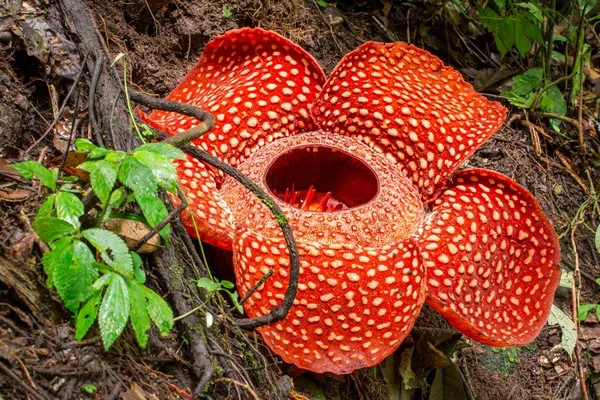Lakes are fascinating natural features, often celebrated for their vast expanses and ecological significance. However, among the grand and expansive, there exist tiny lakes that captivate with their uniqueness. One such lake is Benxi Lake, reputed to be the smallest lake in the world. Located in Liaoning Province, China, Benxi Lake offers a compelling case study in the diversity and wonder of our planet’s aquatic environments. This article delves into the characteristics, ecological importance, and cultural significance of Benxi Lake, providing a comprehensive overview of this diminutive natural wonder.
Introduction to Benxi Lake
Location and Geography
Benxi Lake is situated in Benxi City, within the Liaoning Province of northeastern China. This region is known for its rich history, cultural heritage, and diverse natural landscapes. Despite its small size, Benxi Lake holds a special place in the local geography, nestled amidst the rolling hills and lush greenery of the area.
Physical Characteristics
Benxi Lake is remarkably small, with a surface area of just 15 square meters (approximately 161 square feet). This makes it smaller than many residential swimming pools. The lake’s dimensions and clear, tranquil waters give it an almost surreal quality, attracting visitors and researchers alike.
Historical Context
The history of Benxi Lake is intertwined with the broader history of Benxi City and the Liaoning Province. The lake has been known to locals for centuries, and its existence is documented in historical texts and local folklore. It serves as a natural landmark, symbolizing the unique characteristics of the region.
See Also: 10 Largest Lakes in Asia – You May Not Know
Ecological Significance
Biodiversity in a Small Space
Despite its small size, Benxi Lake supports a surprising amount of biodiversity. The lake and its immediate surroundings are home to various plant and animal species, some of which are adapted to the specific conditions of this micro-ecosystem. Aquatic plants, insects, and small fish thrive in the lake’s waters, contributing to its ecological richness.
Water Quality and Hydrology
The water quality of Benxi Lake is a critical aspect of its ecological health. Given the lake’s small volume, it is particularly sensitive to environmental changes and pollution. Regular monitoring of water quality parameters, such as pH, dissolved oxygen, and nutrient levels, is essential to maintaining the lake’s ecological balance.
Conservation Efforts
Conservation efforts aimed at protecting Benxi Lake focus on preserving its unique ecosystem and preventing environmental degradation. These initiatives involve local authorities, environmental organizations, and community members. Strategies include pollution control, habitat restoration, and public awareness campaigns to ensure the lake’s continued health and vitality.
Cultural and Recreational Importance
Local Folklore and Historical Significance
Benxi Lake is more than just a natural feature; it is a cultural icon with deep roots in local folklore and history. Stories and legends about the lake have been passed down through generations, highlighting its significance in the collective memory of the community. These narratives contribute to the lake’s mystique and cultural value.
Tourism and Recreation
The serene beauty of Benxi Lake makes it a popular destination for tourists and locals seeking recreation and relaxation. The lake’s clear waters and picturesque surroundings provide an ideal setting for activities such as picnicking, photography, and nature walks. Tourism also plays a role in supporting local economies and promoting environmental awareness.
Educational Value
Benxi Lake serves as an educational resource for schools, universities, and environmental organizations. Its unique characteristics make it a valuable case study in limnology, ecology, and environmental science. Educational programs and guided tours help raise awareness about the importance of preserving small lakes and their ecosystems.
Comparative Analysis: Other Small Lakes
Global Perspective on Small Lakes
While Benxi Lake holds the title of the smallest lake in the world, other small lakes around the globe also offer intriguing insights into aquatic ecosystems. For example, Lago di Marozzo in Italy and Arethusa Pool in New Zealand are notable for their small sizes and unique features. Comparing these lakes helps broaden our understanding of the diversity and complexity of small aquatic environments.
Unique Features and Challenges
Small lakes like Benxi Lake often face unique challenges due to their limited size and volume. These challenges include vulnerability to pollution, habitat fragmentation, and climate change. However, their small size also allows for focused conservation efforts and detailed ecological studies that can yield valuable insights for larger-scale environmental management.
The Role of Benxi Lake in Environmental Research
Scientific Studies and Discoveries
Benxi Lake has been the subject of various scientific studies aimed at understanding its hydrology, ecology, and environmental dynamics. Research conducted on the lake provides valuable data on nutrient cycling, species interactions, and the impacts of environmental stressors on small aquatic ecosystems. These studies contribute to the broader field of limnology and inform conservation strategies for similar habitats worldwide.
Monitoring and Data Collection
Ongoing monitoring of Benxi Lake is essential for tracking changes in water quality, biodiversity, and ecosystem health. Data collected from the lake is used to assess the effectiveness of conservation efforts and identify emerging threats. This continuous monitoring helps ensure that the lake’s ecological balance is maintained over time.
Collaboration and Knowledge Sharing
Collaboration between local authorities, academic institutions, and environmental organizations is crucial for the effective management and protection of Benxi Lake. Knowledge sharing and joint research initiatives help pool resources and expertise, enhancing the overall understanding and preservation of the lake. International partnerships also contribute to the global exchange of best practices in lake conservation.
Environmental Challenges and Conservation Strategies
Pollution and Habitat Degradation
One of the primary challenges facing Benxi Lake is pollution from nearby human activities. Runoff from agriculture, industry, and urban areas can introduce contaminants into the lake, affecting water quality and ecosystem health. Habitat degradation, including the loss of surrounding vegetation and changes in land use, also poses a threat to the lake’s ecological integrity.
Climate Change Impacts
Climate change presents a significant challenge for small lakes like Benxi Lake. Changes in temperature, precipitation patterns, and extreme weather events can alter the lake’s hydrology and affect its resident species. Understanding and mitigating the impacts of climate change is a key focus of ongoing research and conservation efforts.
Sustainable Management Practices
Implementing sustainable management practices is essential for the long-term protection of Benxi Lake. These practices include controlling pollution sources, restoring natural habitats, and promoting sustainable land use in the surrounding areas. Engaging local communities in conservation efforts and fostering a sense of stewardship are also important components of sustainable management.
See Also: The Largest Lake in Asia – The Caspian Sea!
Conclusion
Benxi Lake, the smallest lake in the world, stands as a testament to the diversity and wonder of our planet’s aquatic environments. Despite its modest size, this tiny lake in Liaoning Province, China, holds significant ecological, cultural, and recreational value. Understanding and protecting Benxi Lake highlights the importance of small lakes and underscores the need for comprehensive conservation efforts. By appreciating and safeguarding these unique natural treasures, we contribute to the health and resilience of our planet’s ecosystems for generations to come.
You Might Be Interested In:


























